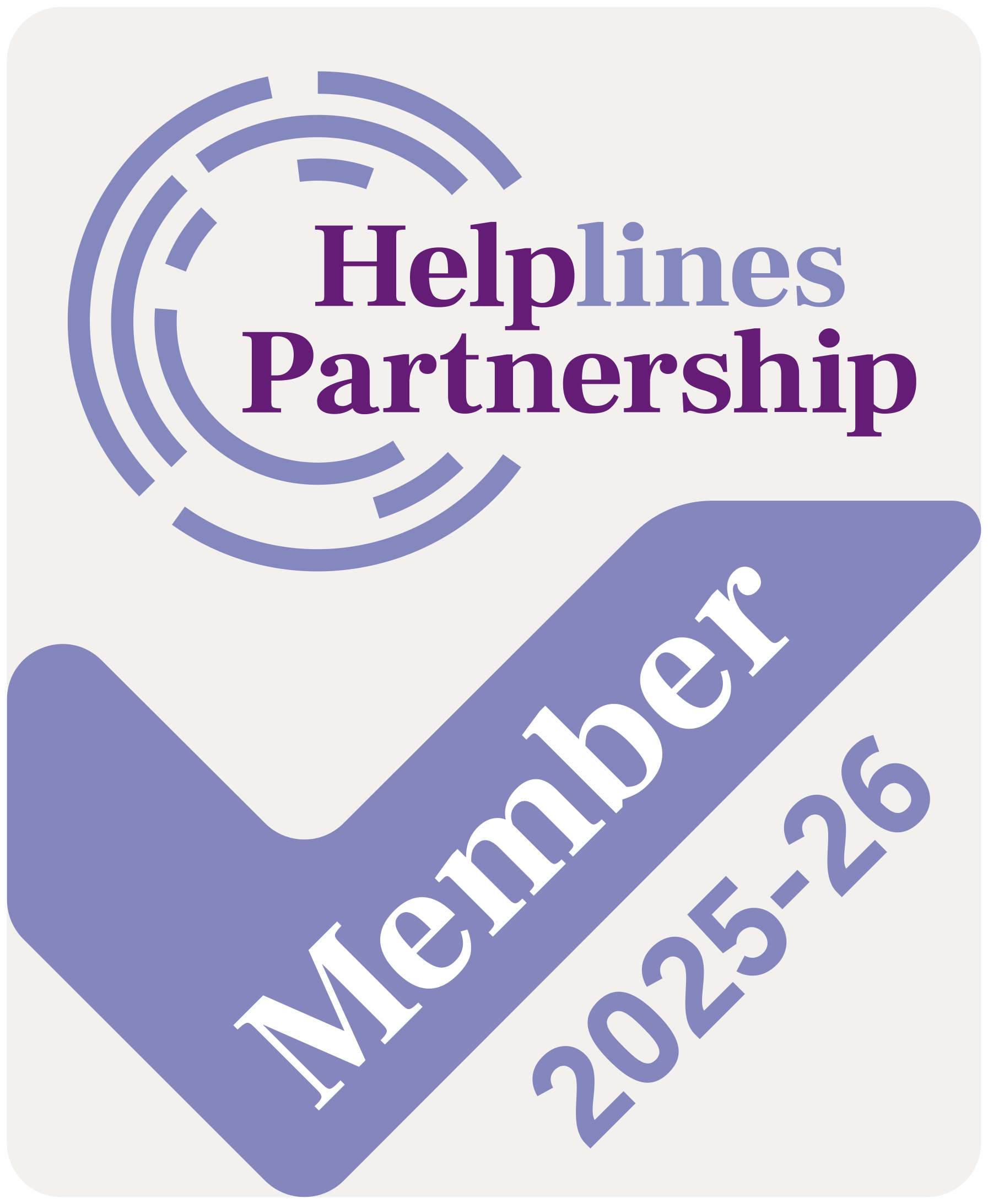The following gives advice for the UK genetic disorders community concerning the Coronavirus (COVID-19) outbreak (dated 25 March 2020).
First of all it is important to state that the situation is changing all the time and we advise you to monitor for the latest government advice at: https://www.nhs.uk/conditions/coronavirus-covid-19/
What is COVID-19?
Coronaviruses are a family of viruses that can cause anything from a common cold to severe acute respiratory syndrome (SARS) and Middle East respiratory syndrome (MERS). COVID-19 is probably, overall, more at the cold and flu-like end of the spectrum of these infections. To date about 80% (80 in 100) of patients recover completely with no treatment. About 1 in 6 people get difficulty in breathing severe enough to need to attend hospital and about 2% (2 in 100) of people, particularly those with cancer, existing lung or heart problems might die from this infection (https://www.who.int/news-room/q-a-detail/q-a-coronaviruses).
Is it worse than influenza?
Every year the World Health Organisation (WHO) estimates about 3-5 million severe cases of influenza worldwide with 250,000 – 650,000 deaths. This would suggest that the risk from coronavirus is similar to that of season flu for most people. The main difference is that we have vaccines that limit the spread and infection with influenza, but at present there is no vaccine and no community immunity to COVID-19 to halt spread.
How is COVID-19 spread?
The disease can spread from person to person through small droplets from the nose or mouth which are spread when a person with COVID-19 coughs or exhales. These droplets land on objects and surfaces around the person. Other people then catch COVID-19 by touching these objects or surfaces, then touching their eyes, nose or mouth. People can also catch COVID-19 if they breathe in droplets from a person with COVID-19 who coughs out or exhales droplets.
Reducing the chance of infection and transmission
Since droplets spread the virus, good hand hygiene is the top priority in preventing transmission of COVID-19, like most respiratory viruses. When out and about, alcohol-based hand-gel can be used to sanitise your hands. Washing your hands, thoroughly and frequently, with soap and water throughout the day will also help reduce the chance of infection.
Should I wear a mask?
Masks are generally not effective, most people do not have appropriate training for a good fit, they need replacing regularly and there is probably greater risk of contaminating your face from your hands adjusting a mask than the benefit from wearing one. The exception is a healthcare setting when you are given a mask, shown how to wear it and it is disposed of appropriately.
Who is at greater risk of becoming very sick?
The main risk factors for more severe disease are older age and lung or heart disease. This includes people with certain genetic conditions, such as, Cystic Fibrosis.
The groups listed as extremely vulnerable are below.
1. Solid organ transplant recipients.
2. People with specific cancers: *people with cancer who are undergoing active chemotherapy or radical radiotherapy for lung cancer *people with cancers of the blood or bone marrow such as leukaemia, lymphoma or myeloma who are at any stage of treatment *people having immunotherapy or other continuing antibody treatments for cancer *people having other targeted cancer treatments which can affect the immune system, such as protein kinase inhibitors or PARP inhibitors *people who have had bone marrow or stem cell transplants in the last 6 months, or who are still taking immunosuppression drugs.
3. People with severe respiratory conditions including all cystic fibrosis, severe asthma and severe chronic obstructive pulmonary disease (COPD).
4. People with rare diseases and inborn errors of metabolism that significantly increase the risk of infections (such as SCID, homozygous sickle cell).
5. People on immunosuppression therapies sufficient to significantly increase risk of infection.
6. Women who are pregnant with significant heart disease, congenital or acquired.
What should high risk groups do?
If you are defined on medical grounds as extremely vulnerable then you should follow the government’s guidance on shielding:
We would recommend taking the highest level of precaution that you as an individual believes is necessary and seek clarification from your hospital specialist or GP.
I think I have COVID-19, what do I do?
Stay calm; the majority of people do not have severe disease. Maintain household hygiene measures to protect those around you, but isolate yourself as much as possible.
Check your symptoms on: https://111.nhs.uk/Covid-19
For most patients who are following basic measures of rehydration and medicine to lower temperature who are improving no further action will be necessary. If you are not getting better check again with NHS111.
What is happening with genetic clinic appointments?
To reduce the risk to patients of acquiring COVID-19, most hospitals are now offering to do already booked appointments by telephone and are no-longer booking new routine appointments. Some patients will need to attend in person, such as women who are pregnant and the pregnancy may be affected by a genetic condition. Hospitals are doing all they can to protect those patients and staff from COVID-19. If you have an upcoming appointment and are unsure, contact the clinic booking number for your centre.
What advice is there from genetic healthcare professionals?
The British Society for Genetic Medicine has produced some general advice regarding Coronavirus (COVID-19) for patients with rare genetic disorders:
Keep up to date
As the number of cases of COVID-19 rises in the UK then the above advice may change and you should follow the general advice given by the Government: https://www.nhs.uk/conditions/coronavirus-covid-19/
Download the latest Covid Rare disease info sheets below
Genetic Disorders UK has been working with the Clinical Genetics Society, The British Society of Genetic Medicine, and The Association of Genetic Nurses and Counsellors to produce a series of Covid-19 information leaflets specifically for the rare disease community. You can download the information sheets here:
- Covid Rare disease Information sheet 1 – Overview
- Covid Rare disease Information sheet 2 – What makes a person more vulnerable?
- Covid Rare disease Information sheet 3 – Understanding your own risk from Covid19
- Covid Rare disease Information sheet 4 – What to do if you are extremely vulnerable
- Covid Rare disease Information sheet 5 – What to do if you have symptoms
- Covid Rare disease Information sheet 6 – I am worried about letting carers into my home
These information sheets are also available as youtube videos, including versions in BSL
Visit: https://www.youtube.com/channel/UCn3ltznjf4mi7oxOCLXDJGA/videos?view=0&sort=dd&shelf_id=0
NEW interactive online patient tool for people with rare diseases to better understand their risk of Covid-19.
There has been considerable anxiety and confusion among many people living with rare diseases about their level of risk from covid-19 and the precautions they should take.
In response to this, clinical genetics doctors in the UK have collaborated to develop a patient interactive tool that guides patients through a series of questions to better understand their risk and what precautions they should take to look after themselves. The purpose of the tool is to open a conversation with the patient’s primary physician about their Covid19 risk – it does not replace individualised advice.
Here is the link: https://is.gd/covid19_gosh
Other helpful resources





